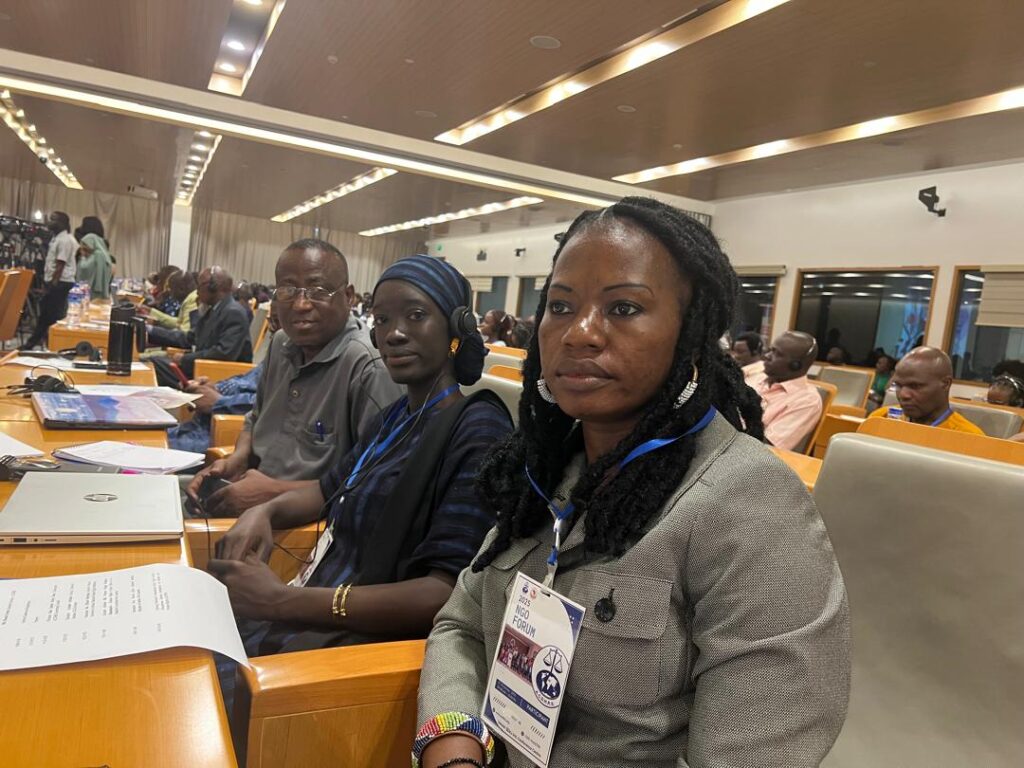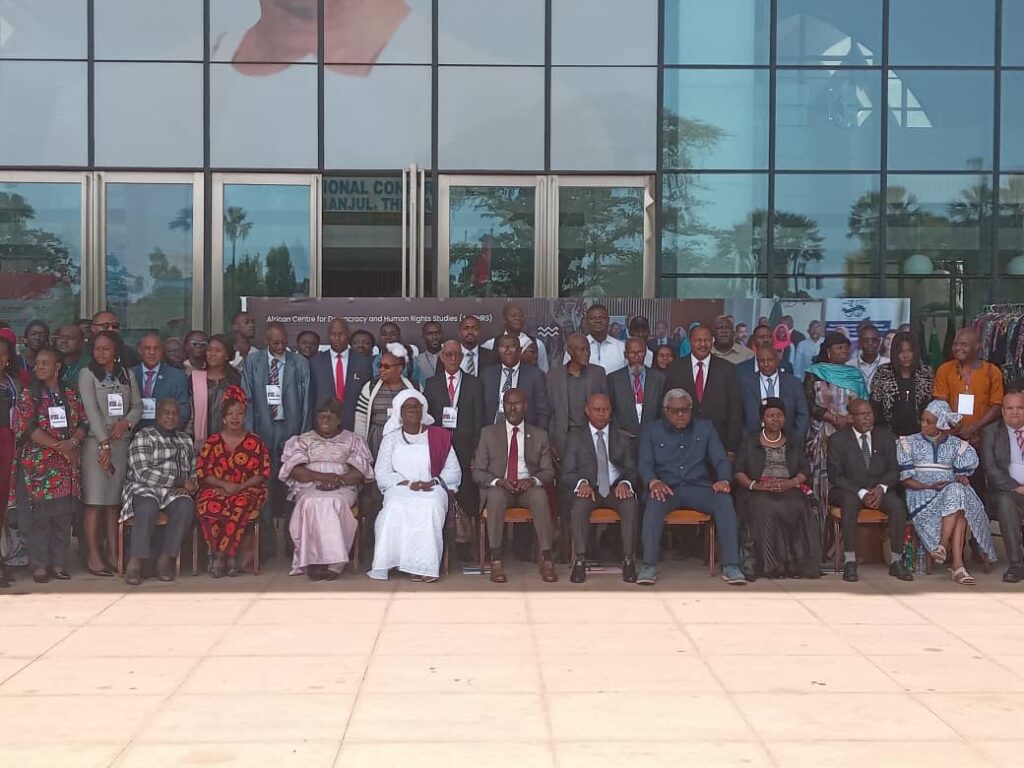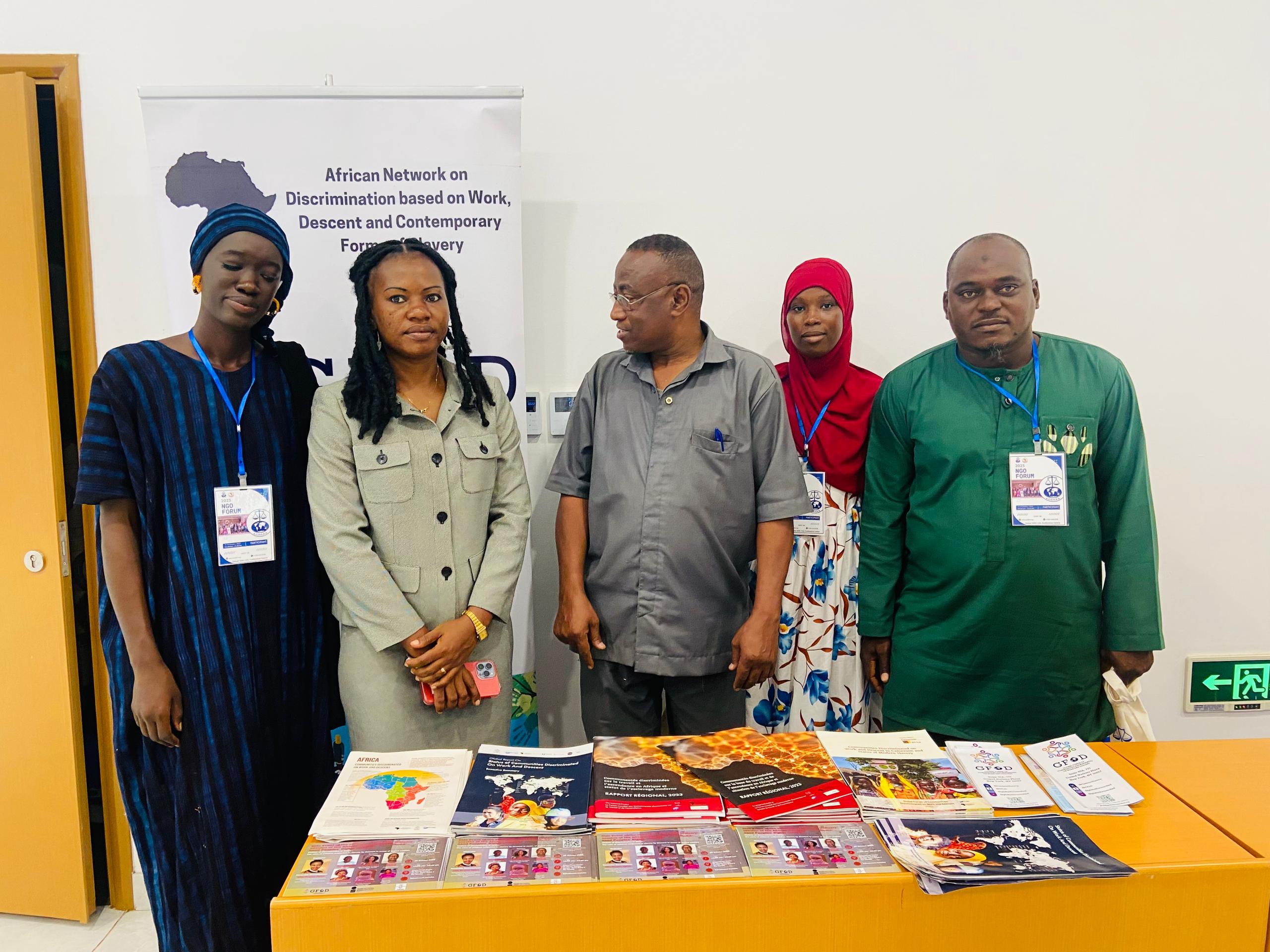From Recognition to Real Change: CDWD Advocates Call for Urgent Action to Implement ACHPR Resolution 619
At the ongoing session of the African Commission on Human and Peoples' Rights (ACHPR) in Banjul, The Gambia, experts representing the Global Forum on Discrimination (GFoD) delivered powerful interventions on behalf of Communities Discriminated on Work and Descent (CDWD), urging African governments and regional institutions to move beyond symbolic recognition and ensure tangible protection of CDWD rights.
Queen Bisseng, GFoD's Regional Coordinator, highlighted the significance of ACHPR/Res.619 (LXXXI) 2024, a resolution adopted last year to advance the rights of CDWD across Africa.
She described the resolution as a historic milestone in the recognition, protection, and promotion of the rights of communities historically marginalized by descent and occupation.
In her address, Bisseng emphasized that while the resolution represents a major achievement, its transformative potential will only be realized through deliberate national and regional action.
She outlined several critical follow-up measures, beginning with the incorporation of ACHPR/Res.619 into national laws and policies. Governments, she said, must provide explicit legal recognition of descent-based discrimination as a human rights violation, backed by enforceable anti-discrimination laws and accessible legal remedies for victims.

She also called for specialized legal aid mechanisms and the training of judicial and law enforcement officials to respond effectively to caste- and descent-based violations. “Without access to justice,” she noted, “recognition remains paper-thin.”
Queen Bisseng further urged civil society organizations, media, and educational institutions to amplify awareness of the resolution and the realities faced by CDWD.
She stressed the need for regional and national human rights institutions to engage in public education campaigns and for traditional and religious leaders to be sensitized to the principles of inclusion and equality embodied in the resolution. To ensure accountability, Bisseng proposed that the ACHPR establish a monitoring mechanism to track states' implementation efforts, with regular progress reporting.
She also encouraged the African Union (AU) to integrate CDWD protections into its broader human rights agenda, and to coordinate closely with United Nations bodies to ensure CDWD issues are addressed in international frameworks such as the Universal Periodic Review (UPR).
“The resolution must not remain symbolic,” Bisseng concluded. “Our communities have waited for too long for equality, dignity, and recognition under the law. The ACHPR's adoption of this resolution gives us hope—but hope must be turned into justice through concrete action.”
Following her remarks, Cheick Sidati, GFoD's Senior Rights Expert, spoke during the panel on Environmental Justice and Indigenous Peoples' Rights.
His intervention shed light on how environmental degradation and extractive industries disproportionately harm CDWD in Mauritania.
Sidati described the Ndiago gas exploitation zone, where communities of descent-based groups live without any legal protection of their environmental or human rights.
“There is no law in force that safeguards these communities or their land,” he said, underscoring the structural invisibility of CDWD within national environmental frameworks.
In the Chami gold-mining region, Sidati revealed that most artisanal miners are from CDWD backgrounds, working in precarious conditions without safety measures or medical support.
He warned of serious health risks due to mercury contamination, calling for urgent intervention by national and regional authorities.
He also raised concerns about overfishing in Nouadhibou, where industrial fishmeal factories have depleted marine resources, leaving thousands of CDWD fishers jobless. “Environmental injustice has become a new form of descent-based exclusion,” Sidati said. “Our people are the first to lose their land, livelihood, and health—and the last to be recognized.”
The ACHPR session opened with the NGO Forum, organized by the African Centre for Democracy and Human Rights Studies (ACDHRS).The event brought together human rights advocates, commissioners, and government representatives to discuss pressing issues across the continent.
The opening ceremony featured remarks from Mr. Hannah Forster, Executive Director of ACDHRS; Hon. Justice Solomy Bossa, Chairperson of the ACDHRS Governing Council; Corlette Letlojane, member of the NGO Forum Steering Committee; Mr. Gilbert Sebihogo, Executive Director of the Network of African National Human Rights Institutions; and Mrs. Yvonne Fungai Tawanda, Human Rights Adviser at the Office of the UN Resident Coordinator in The Gambia.
Hon. Dawda Jallow, Attorney General and Minister of Justice of The Gambia, also addressed participants, reaffirming his government's commitment to the ACHPR's human rights framework.
In his keynote, Remy Ngoy Lumbu, Chairperson of the ACHPR, underscored the importance of inclusion, urging that communities be supported to participate in the forum—most especially people of African descent.

His call resonated strongly with the CDWD delegation, whose advocacy aligns closely with the Commission's vision for a more inclusive human rights architecture in Africa.
Through the voices of Queen Bisseng and Cheick Sidati, the Global Forum on Discrimination reaffirmed its mission to ensure that ACHPR/Res.619 is not just a milestone on paper but a living framework for equality and justice for millions of people across Africa who continue to face discrimination based on work and descent.
Also Read: GFoD Calls for Urgent Global Action to End Discrimination Against Women from CDWD Communities


